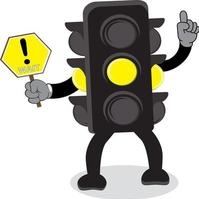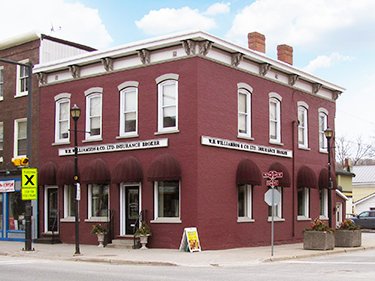Barbecue Season Is In Full Swing: Don’t Go Up In Flames
The joys of outdoor cooking also bring fire and associated risks. Here are some safety reminders for gas and propane barbecues to protect you and your property from harm or damage.
• Never operate a barbecue in an enclosed space, close to a structure, or near combustibles. Have a one metre radius around it free of obstructions.
• Keep your barbecue in tip top shape. Check for hose breakage, valve leaks, and other parts before securing the tank well and turning on the gas.
• When in use, never leave the grill unattended, and when finished turn the tank off before the burners so the remaining gas in the lines can burn off. This can help prevent a flash the next time the BBQ is in use.
• Make sure your fire extinguisher is easily accessible and in good working order.
Additional Tips
• Propane companies use an additive to create an unpleasant odour like rotten eggs to make a propane leak easier to detect, so you can shut off supply immediately, stop using the grill, and clear the area.
• Although the risk of carbon monoxide is low when using a BBQ outdoors, it is not entirely eliminated. Learn to recognize the signs of CO2 poisoning and take appropriate action.
• Store propane tanks in an upright position, in a spot where they are unlikely to be knocked or bumped to prevent any safety risk.
|
|
|
| Closing Your Cottage | |
|
October is traditionally the month when cottages are closed until next season. A lot of costly spring repairs are made necessary by improperly drained pipes, pumps and tanks that have frozen and cracked or burst over the winter months. If you have never drained your cottage’s plumbing system before, you should have a licensed plumber take you through the process, in your cottage, step by step. Be sure to cover the following:
To reduce the likelihood of unwated surpreses, here are some other important things to remember:
|
October is traditionally the month when cottages are closed until next season. A lot of costly spring repairs are made necessary by improperly drained pipes, pumps and tanks that have frozen and cracked or burst over the winter months. If you have never drained your cottage’s plumbing system before, you should have a licensed plumber take you through the process, in your cottage, step by step. Be sure to cover the following:
- Check all pipes and connections before you drain – mark any leaks for repairs.
- Check that supply lines all slope down to a low point under or outside the cottage. Turn off the power to the water pump and the hot water tank. Drain the hot water tank.
- Open all the taps inside and outside the cottage, then open the drain valves to let the water drain out. Leave them open through the winter.
- Flush all toilets and remove any remaining water in the tank or toilet bowl.
- Drain and disconnect any outside tanks and pumps.
- Finally, winterize the system by pouring 2 cups of Propylene Glycol Antifreeze into each drain and 4 cups into each of the toilet bowls and tanks.
To reduce the likelihood of unwated surpreses, here are some other important things to remember:
- Do a walk-around inspection. Check the siding, caulking around windows and doors, eaves and flashing, chimney and eaves troughs. Trim back overhanging trees and cut back dead or damaged branches everywhere.
- Replace and test batteries in smoke alarms and CO2 detectors.
- Block any new mouse holes with steel wool.
- Close any propane tank valves.
- Turn off the main power.
- Lock all doors and windows.
- Leave keys and your phone number with a neighbour or someone else you trust, who can check the cottage regularly.
 Who’s At Fault in Caution Light Crashes?
Canada’s dreaded amber light is the source of numerous intersection crashes, resulting in untold insurance claims. Because of this, be especially vigilant when turning left against yellow caution lights at intersections. Although the outcome of a given case will be determined based upon the facts that are unique to that case, a driver making a left-hand turn will generally not be able to rely on an assumption that the other driver will stop for the yellow light.
Fault for the resulting collision will likely be found in such cases on the part of the left-turning driver.
Drivers have a legal duty to stop for a yellow light, but only if they can do so safely. Otherwise, they are allowed to proceed through the intersection with caution.
The Highway Traffic Act states that a left-turning driver must ensure the turn can be safely made, so it is the responsibility of that driver to make sure it is safe to proceed through the intersection.
Some drivers attempting to make a left turn on a yellow light may assume that an approaching vehicle will stop; however, this assumption does not lessen or negate liability for left-hand turning drivers in the event of a collision.
Who’s At Fault in Caution Light Crashes?
Canada’s dreaded amber light is the source of numerous intersection crashes, resulting in untold insurance claims. Because of this, be especially vigilant when turning left against yellow caution lights at intersections. Although the outcome of a given case will be determined based upon the facts that are unique to that case, a driver making a left-hand turn will generally not be able to rely on an assumption that the other driver will stop for the yellow light.
Fault for the resulting collision will likely be found in such cases on the part of the left-turning driver.
Drivers have a legal duty to stop for a yellow light, but only if they can do so safely. Otherwise, they are allowed to proceed through the intersection with caution.
The Highway Traffic Act states that a left-turning driver must ensure the turn can be safely made, so it is the responsibility of that driver to make sure it is safe to proceed through the intersection.
Some drivers attempting to make a left turn on a yellow light may assume that an approaching vehicle will stop; however, this assumption does not lessen or negate liability for left-hand turning drivers in the event of a collision.




 W.H. Williamson & Co. Limited
W.H. Williamson & Co. Limited




